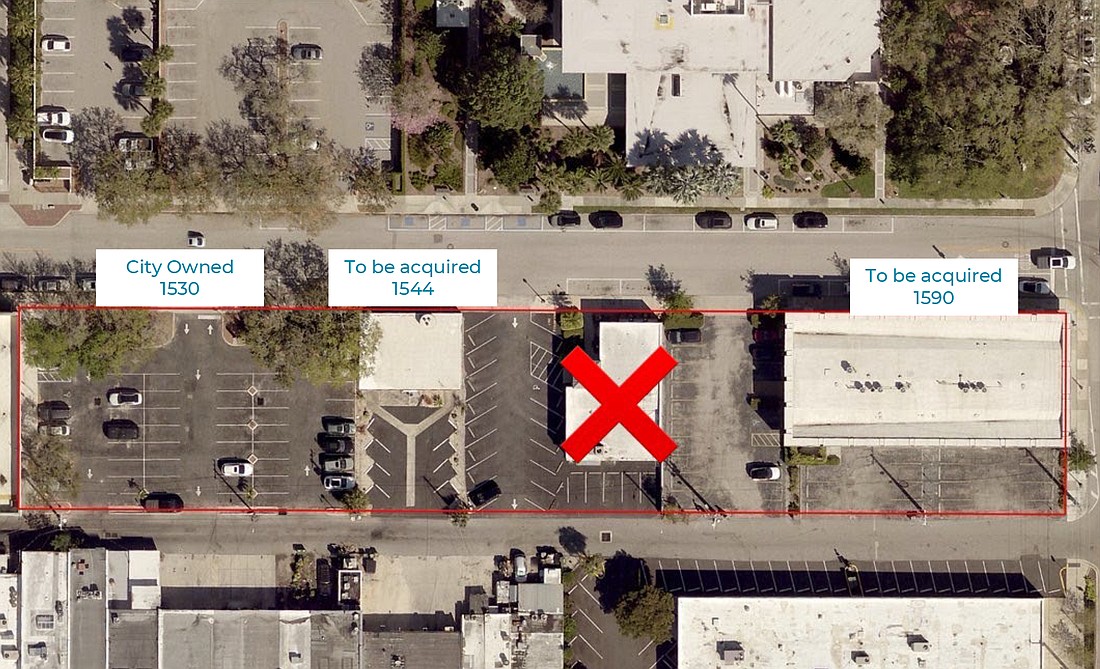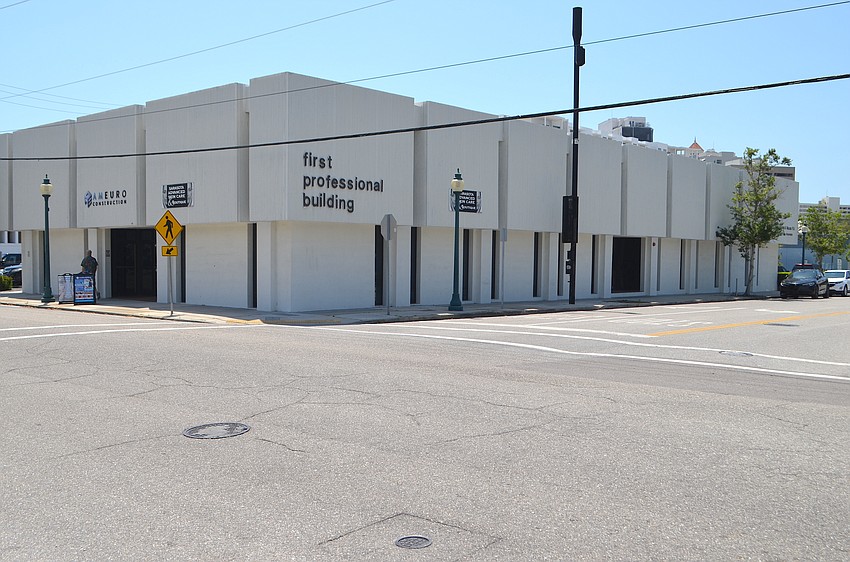- July 23, 2025
-
-
Loading

Loading

Sarasota City Manager Marlon Brown wants the city to get into the apartment business, and the discussion at their April 15 meeting indicates city commissioners agree.
The idea is to use a small city parking lot and purchase two other parcels across First Street from City Hall. There, the city would spearhead the construction of two 10-story towers for 192 workforce and affordable housing apartments with ground-floor commercial space the city would sell to help offset some costs.
The city would own the building, perhaps in partnership with other companies and organizations that have an interest in making residences in the downtown area accessible to the workforce class.
As lawyers looking out for the best interests of their clients are prone to do, though, Deputy City Attorney Michael Connelly told commissioners not so fast. There may be valid reasons no other municipality in the state has attempted such an ambitious endeavor.
Commissioner Erik Arroyo quizzed Connelly, who was filling in for City Attorney Robert Fournier at the meeting, about whether he knows of any government entity that has created a limited liability corporation to insulate itself from liabilities incurred in a specific project.
“Is it because government entities can't do that, or it's just because the government part of the public sector just doesn't think about stuff like that?” Arroyo asked.
“It's because I've never seen a governmental entity own and operate an apartment complex yet,” Connelly responded. “Under the Florida Constitution, local government, a city in particular, only has authority to operate for a municipal purpose. And so what is the municipal purpose? All I can tell you is, to my knowledge, it has never happened.”

The city currently has the two properties under contract to purchase for $7.4 million. Brown estimated the total cost to be $70 million to $80 million. Because the city is not in the business of making a profit, rents would be capped and the requisite number of affordable and attainable units will be offered per code.
Connelly cautioned commissioners that he had concerns about five of the 10 directives Brown was seeking, largely surrounding the finances and whether the city can offer organizations — such as the school system or Sarasota Memorial Hospital — reserved units for employees in exchange for contributions to the project without being deemed discriminatory.
The city will have to raise those funds from somewhere. The Barancik Foundation has committed $1.5 million to the project and Brown said he is in talks with Community Foundation of Sarasota County and the Gulf Coast Community Foundation for similar amounts.
Combined with the more than $4 million in the city’s Affordable Housing Trust Fund, the city still needs to raise nearly $1.9 million to buy the property. That gap may be filled by a request of $2 million in state money by State Rep. Fiona McFarland, which has been approved by both the State House and Senate and is waiting for Gov. Ron DeSantis’ signature, Brown told commissioners.
Still, Connelly’s concerns include:
With all that on the table, commissioners unanimously approved the property acquisition.